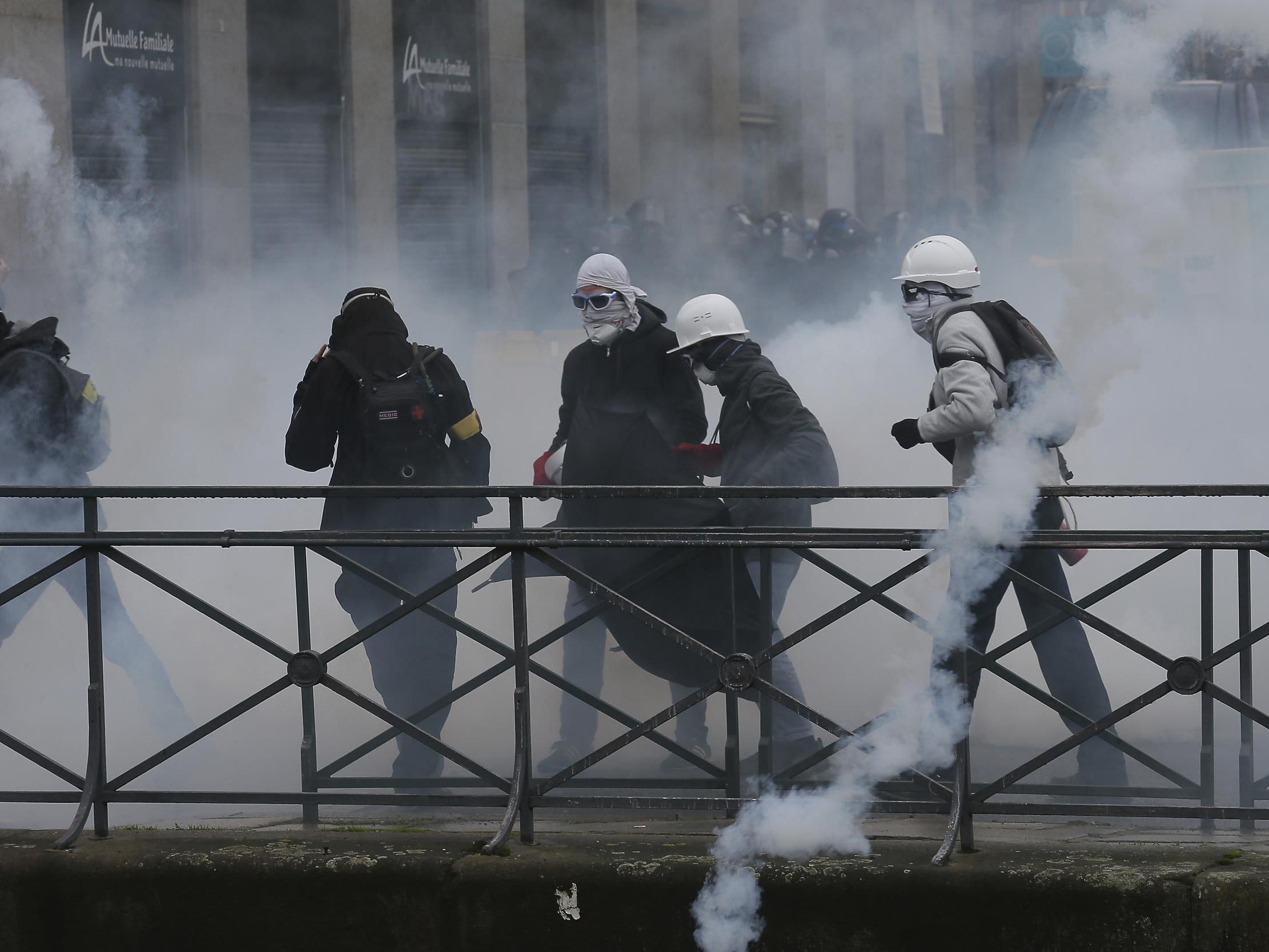Thousands of people were left stranded over Christmas thanks to strikes in France – and I was one of them
As trains came to a standstill, the fragility of the veneer that separates civility from savagery quickly revealed itself

The scene at Gare du Nord was out of a Hieronymus Bosch painting, but with the tormented souls dragging knock-off wheeled luggage instead of chains pulling at their feet. It was Christmas Eve, amid one of the worst labour strikes to hit France in years. Rail transport unions enraged at Emmanuel Macron’s proposal to restructure the country’s pensions rejected his calls for a holiday truce to allow families to get to their loved ones.
So my plan to arrive at Charles De Gaulle airport and quickly make it for Christmas dinner with family at Porte d’Orleans, in the south of the capital, was thwarted. Google Maps showed a two-hour ride to Paris, and airport personnel were warning that the taxi line stretched for an hour outside the terminal.
With few other options, I squeezed onto one of the few running commuter trains to Gare du Nord, hoping to catch another train or metro or even an oxcart that might stop somewhere near my destination.
The train belched me and all the other passengers out onto the packed platform at Gare du Nord, where all the escalators and elevators also seemed to be on strike. The passengers were massed against each other, and tempers flared as we scoured the terminal for information about the few trains that were running.
As I pulled my carry-on through the cramped corridors, an elderly man walked into me. “Pardon,” I said, with a smile, but he would have none of it! He began yelling at me and even clenching his fists. I shrugged, shook my head and walked away. It’s Christmas Eve, I muttered.
As I half-stumbled down a stairwell, I spotted two young women in an altercation. The shorter one hit the taller one in the face, nearly knocking off her glasses. The taller one picked up her violin case and was about to smash it on her adversary when I reached the bottom of the stairs and put myself between the two. “It’s not worth it,” I said to the woman gripping her violin case. “Let it go. It’s Christmas Eve.”
I eventually squeezed into another commuter rail line that would get me about a 15-minute walk from Porte d’Orleans, and I remembered something a professor of mine, the Hungarian scholar Ferenc Feher, who had watched the Nazis take his father away, had warned about some decades ago. He spoke to students about the liberal institutions that we all took for granted, and the veneer that separates civility from savagery, and that if we’re not vigilant about our own actions and words, we can easily descend into barbarism. How quickly a violin can become a weapon.
Yours,
Borzou Daragahi
International correspondent
Join our commenting forum
Join thought-provoking conversations, follow other Independent readers and see their replies
Comments